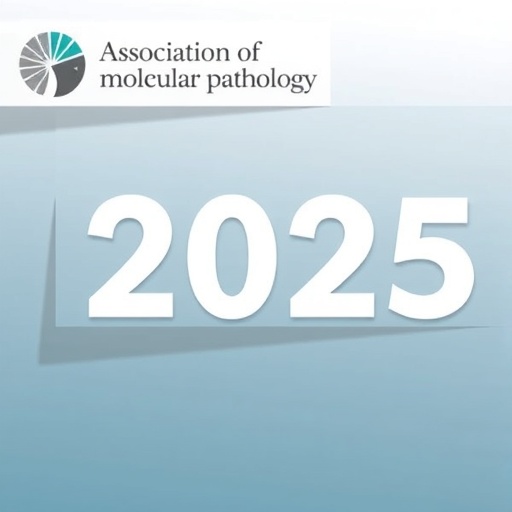The Association for Molecular Pathology (AMP), recognized globally as a leading professional society dedicated to molecular diagnostics, has revealed the results of its 2026–2027 leadership elections. AMP’s commitment to advancing molecular pathology is exemplified by these new appointments, which underscore the society’s integral role at the forefront of diagnostic innovation. This leadership transition marks a significant milestone as AMP continues to push the boundaries of molecular diagnostics, fostering collaboration and scientific rigor among researchers and clinicians worldwide.
The President-Elect, Dr. Yassmine M.N. Akkari, brings expertise from Nationwide Children’s Hospital and The Ohio State University College of Medicine, where her work integrates molecular techniques with clinical applications aimed at enhancing diagnostic precision. This strategic choice reflects AMP’s emphasis on bridging translational science and patient care, a hallmark of molecular pathology that drives personalized medicine forward. Dr. Akkari’s leadership is expected to elevate the society’s impact on fostering interdisciplinary molecular diagnostic approaches.
In parallel, the appointment of Dr. Jonathan A. Nowak as Secretary-Treasurer further strengthens AMP’s governance. Dr. Nowak’s base at Brigham and Women’s Hospital and Harvard Medical School situates him within one of the most prestigious research hubs for molecular pathology. His dual M.D. and Ph.D. backgrounds position him uniquely to steward AMP’s resources while promoting rigorous scientific standards vital for the rapid evolution of diagnostic paradigms.
The Program Committee Chair-Elect, Dr. Rena R. Xian from Johns Hopkins University School of Medicine, will oversee the critical task of curating AMP’s educational offerings and scientific discourse. In an era where molecular diagnostic technologies evolve at a breakneck pace, her role is essential in ensuring that AMP’s programs not only reflect the latest research but also anticipate future directions in molecular pathology, bioinformatics, and precision oncology.
AMP’s various subdivisions, each representing specialized areas within molecular pathology, underscore the breadth and depth of the society’s expertise. The Genetics Subdivision, for instance, plays a pivotal role in elucidating the molecular underpinnings of hereditary diseases and cancer predisposition. Leaders such as Dr. Panieh Terraf from Memorial Sloan Kettering Cancer Center and Dr. Jennifer Laffin of the University of Minnesota Twin Cities reflect a robust commitment to advancing genetic diagnostics, integrating cutting-edge genomic technologies into clinical practice.
Within the Hematopathology Subdivision, the appointments—including Chair Mark D. Ewalt and clinical representatives like Dr. Kevin E. Fisher—highlight ongoing efforts to refine molecular diagnostic criteria for hematologic malignancies. These leaders represent institutions common to transformative research in hematology, emphasizing molecular mechanisms, biomarker identification, and therapeutic stratification essential for disease management.
The Infectious Diseases Subdivision also gains renewed leadership, with experts such as Dr. Heather Glasgow from St. Jude Children’s Research Hospital contributing to AMP’s mission. Molecular diagnostics in infectious diseases are experiencing unprecedented growth, fueled by rapid pathogen detection methods and genomic epidemiology. AMP’s leadership ensures these advances are translated into standards and educational initiatives that bolster diagnostic accuracy and outbreak preparedness.
Informatics, a critical frontier in molecular diagnostics, is represented by leaders like Dr. Jeffrey Gagan of the National Institutes of Health. The integration of computational biology, bioinformatics, and data science within AMP reflects the increasing reliance on algorithms and machine learning for interpreting complex genomic data sets. This subdivision’s stewardship is crucial as the society navigates the challenges and opportunities presented by big data in molecular pathology.
The Solid Tumors Subdivision, led by Chair Dr. Jaclyn F. Hechtman, underscores the vital role that molecular pathology plays in oncology. With the expansion of targeted therapies and precision medicine, AMP’s leadership insists on advancing diagnostic frameworks that identify actionable mutations and resistance mechanisms, ensuring patient-specific therapeutic interventions. The presence of representatives from leading cancer centers confirms AMP’s dedication to bridging research and clinical application.
Beyond individual roles, AMP’s leadership structure embodies a collaborative framework designed to foster interdisciplinary scholarship and education. The newly elected committee chairs and representatives are tasked with advancing training programs and publications, ensuring that molecular pathology professionals remain equipped with current knowledge and innovative diagnostic tools. This approach aligns with AMP’s foundational goal: to provide leadership that cultivates progress in molecular diagnostics.
AMP’s influence extends beyond its membership. With over 3,100 members worldwide, including pathologists, scientists, and technologists, the society actively shapes the standards of molecular diagnostics across academic, clinical, government, and industry settings. The new leadership is poised to continue this trajectory, facilitating global dialogue and promoting scientific advancements that improve patient outcomes.
Reflecting on AMP’s history since its inception in 1995, the organization has evolved amid an era of extraordinary scientific development. Molecular diagnostics have transitioned from niche research to standard clinical practice, revolutionizing disease detection, prognosis, and treatment monitoring. AMP’s leadership elections symbolize the society’s ongoing commitment to guiding this evolution through expertise, innovation, and education.
In conclusion, the announcement of AMP’s 2026–2027 leadership representatives not only signifies a renewal of stewardship but also heralds an era poised for scientific breakthroughs in molecular pathology. These leaders represent the dynamism and innovation critical for advancing molecular diagnostics, thus ensuring that AMP remains at the vanguard of this transformative field.
Subject of Research: Molecular diagnostics and leadership in molecular pathology professional society
Article Title: Association for Molecular Pathology Announces 2026–2027 Leadership Election Results
News Publication Date: June 23, 2025
Web References: http://www.amp.org
Keywords: Molecular diagnostics, molecular pathology, genetics, hematopathology, infectious diseases, bioinformatics, oncology, precision medicine, professional society, clinical practice, education, leadership




